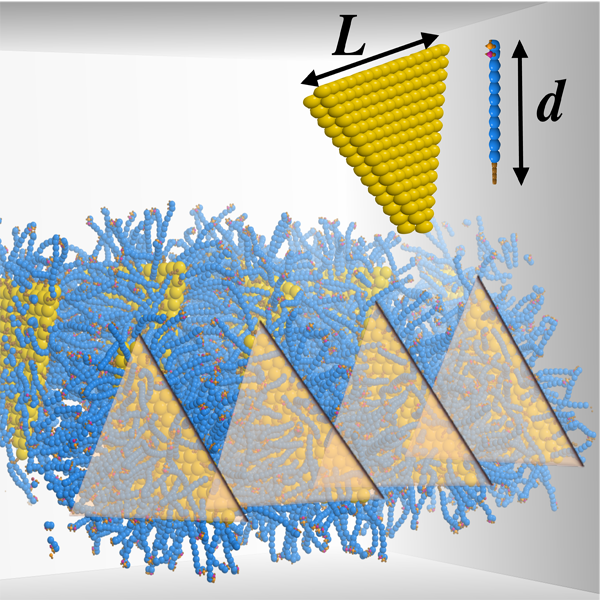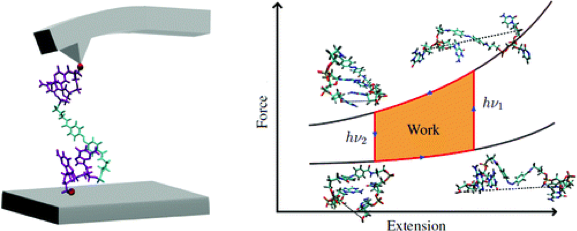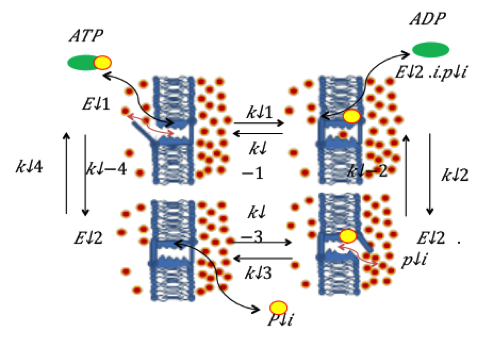Above: A realization of a photosynthetic Ca2+ ion pump.


We seek to draw inspiration from biology in developing biomaterials for the energy transport. In order to understand biological molecules, we go beyond equilibrium thermodynamics to study self-assembly in non equilibrium conditions. We are interested in developing new theoretical methods to describe the nonequilibrium self-assembly of aggregates and assemblies of molecules and nanoparticles. This includes studies of the formation of DNA-linked nanoparticle superlattices using a maximum hybridization model that successfully explains superlattice crystal structures that can be prepared depending on DNA-linker density and length, and nanoparticle diameter. We also developed molecular dynamics methods based on the use of “seeded” structures to describe the self-assembly of peptide amphiphiles (Figure 1). This provided a molecular level picture of the resulting cylindrical micelle fiber structures for the first time.

In other work, we have developed the thermodynamics and nonequilibrium statistical mechanics of bistable molecules in the presence of an external force, with emphasis on rotaxanes, DNA and azobenzenes (Figure 2). This work is now being transitioned to the study of molecular machines such as ion pumps (Figure 3) that combine chemical interactions and electron transfer with photoinduced electron transfer or electrochemical control. For example, artificial light-driven Ca2+ ion pump (Figure 4).
Eric Cheng-Tsung Lai, postdoctoral fellow
Yu Zhang, postdoctoral fellow
Aysenur Iscen, 2nd year graduate student
Recent Publications:
Lai, C.-T.; Zhang, Y.; Schatz, G.C. Light-driven Ca2+ ion pump: How does it work? J. Phys. Chem. B (in press)
Lee, O.-S; Cho V.; Schatz, G.C. Modeling the Self-Assembly of Peptide Amphiphiles into Fibers Using Coarse-Grained Molecular Dynamics. Nano Lett., 2012, 12, p4907–4913
McCullagh M.; Franco I.; Ratner, M.A.; Schatz, G.C. DNA-Based Optomechanical Molecular Motor. J. Am. Chem. Soc., 2011, 133, p 3452–3459
Kohlstedt K.L; Olvera de la Cruz M.; Schatz, G.C. Controlling Orientational Order in 1-D Assemblies of Multivalent Triangular Prisms. J. Phys. Chem. Lett., 2012, 133, p3452–3459
Yu, T.; Schatz, G.C. Free Energy Profile and Mechanism of Self-Assembly of Peptide Amphiphiles Based on a Collective Assembly Coordinate. J. Phys. Chem. B, 2013, 4, p203–208.
Lee, O. S., Stupp, S. I., Schatz, G. C. Atomistic Molecular Dynamics Simulations of Peptide Amphiphile Self-Assembly into Cylindrical Nanofibers. J. Am. Chem. Soc. 2011, 135, p135-148.
